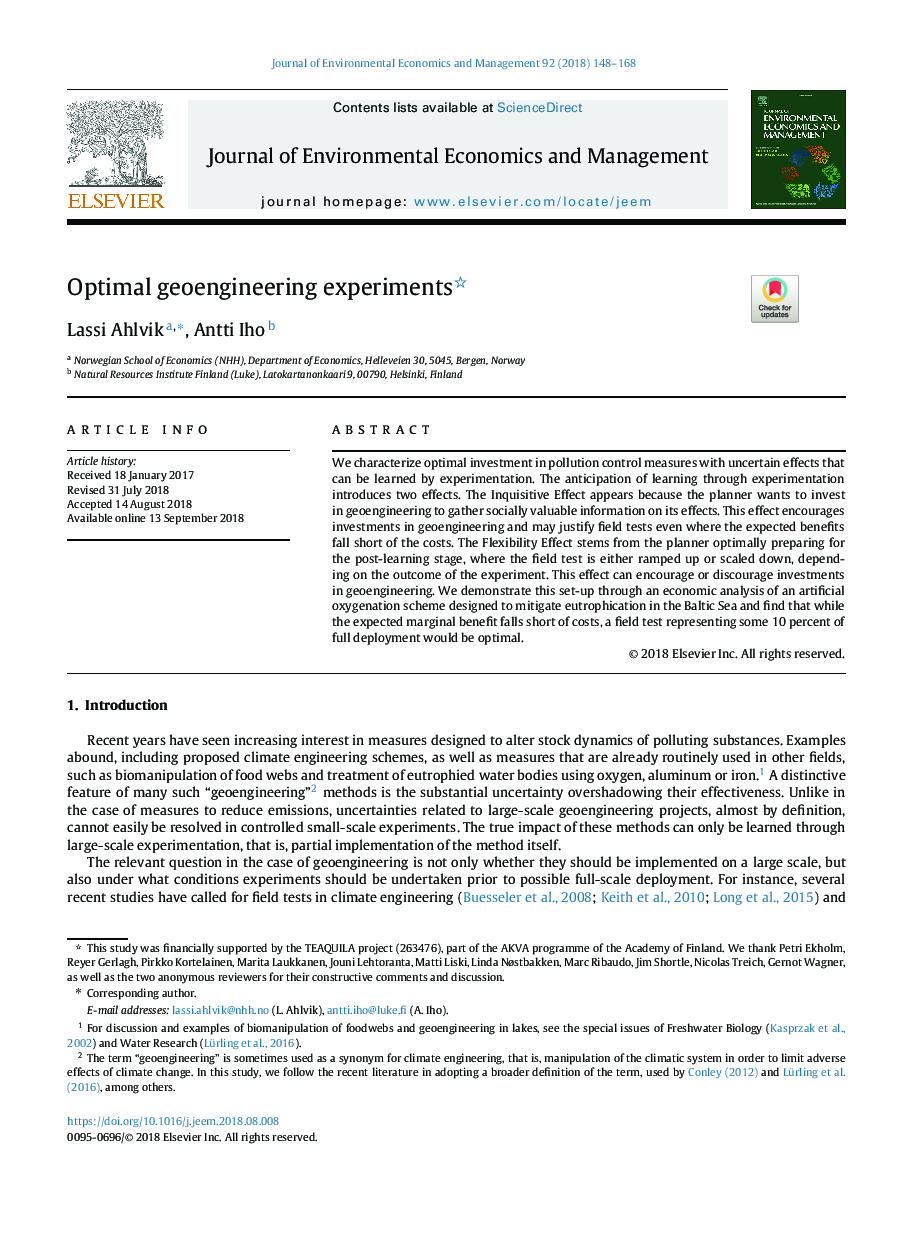| Article ID | Journal | Published Year | Pages | File Type |
|---|---|---|---|---|
| 11023351 | Journal of Environmental Economics and Management | 2018 | 21 Pages |
Abstract
We characterize optimal investment in pollution control measures with uncertain effects that can be learned by experimentation. The anticipation of learning through experimentation introduces two effects. The Inquisitive Effect appears because the planner wants to invest in geoengineering to gather socially valuable information on its effects. This effect encourages investments in geoengineering and may justify field tests even where the expected benefits fall short of the costs. The Flexibility Effect stems from the planner optimally preparing for the post-learning stage, where the field test is either ramped up or scaled down, depending on the outcome of the experiment. This effect can encourage or discourage investments in geoengineering. We demonstrate this set-up through an economic analysis of an artificial oxygenation scheme designed to mitigate eutrophication in the Baltic Sea and find that while the expected marginal benefit falls short of costs, a field test representing some 10 percent of full deployment would be optimal.
Related Topics
Social Sciences and Humanities
Economics, Econometrics and Finance
Economics and Econometrics
Authors
Lassi Ahlvik, Antti Iho,
